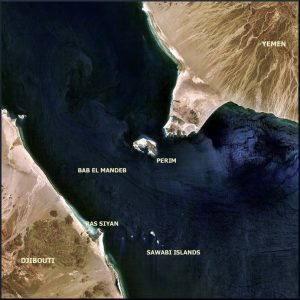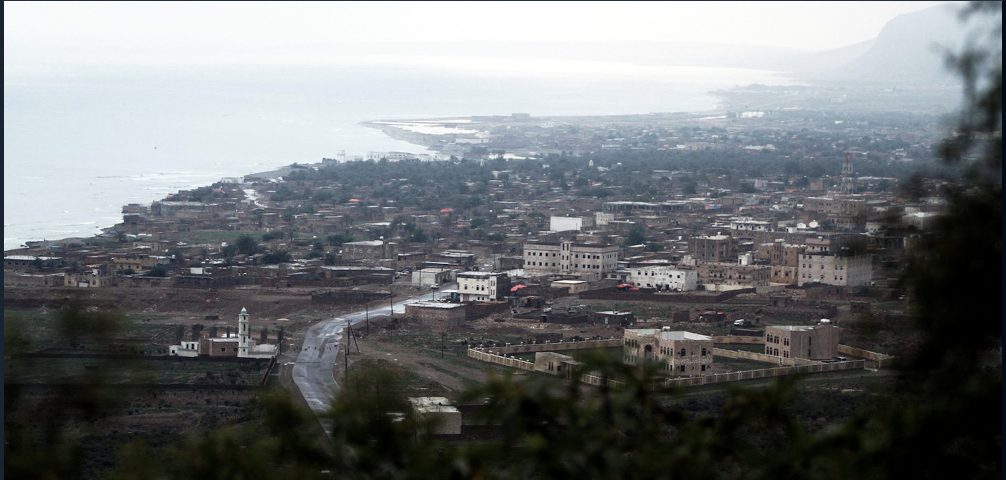by Ahmed Abdulkareem, published on Mintpress News, September 10, 2020
SOCOTRA, YEMEN — In the wake of the recent normalization of ties between Israel and the United Arab Emirates in August, it is becoming increasingly clear that Tel Aviv is set to take on an increasingly active role in the war on Yemen, a war that the UAE – together with Saudi Arabia – launched over six years ago.

Yemen’s strategic islands, particularly the sparsely populated archipelago containing Socotra located at the mouth of Gulf Aden in one of the world’s busiest shipping lanes, is of particular importance. Often a flashpoint for tensions between Iran and the United States, Yemen and the Saudi Coalition, and a major chokepoint for much of the world’s maritime transit, the waters surrounding Yemen, particularly the island of Socotra, have become a much-vaunted prize for regional intelligence and security apparatus. Now, both the UAE and Israel are working to establish military and intelligence centers on Socotra, which lays some 240 kilometers east of the coast of Somalia and 380 kilometers south of the Arabian Peninsula.
According to one Yemeni source, the United Arab Emirates and Israel have already completed logistical operations to establish intelligence-gathering bases and new military facilities on the island. A presence on Socotra will not only allow the new alliance to establish a foothold against Yemen’s Houthi-led opposition, but will allow it to conduct surveillance on Oman, Iran, Pakistan, and China, who, in recent years, has established a presence on the nearby horn of Africa.
Last week, an Emirati ship arrived on Socotra laden with personnel from the UAE and Israel and transporting weapons and communication equipment according to a local source on the island. Even before the UAE-Israel normalization deal was announced, the two countries were sending delegations to Perim Island, known as Mayyun in Arabic, a volcanic island in the Strait of Mandeb at the south entrance to the Red Sea.
In Socotra, locals report that the same Emirati-Israeli team arrived on an Emirati aircraft various times throughout the year to examine locations in the Momi district on the east of the island and the Qatnan locality on its western coast.
Issa Salem Bin Yaqoot al-Soctari, the head of indigenous tribes on the island, said in a statement recently that the UAE has brought Israel to Socotra and that both sides have already started building new bases there. With much consternation, al-Soctari complained of the UAE’s “policy of repression, starvation, and intimidation” against the island’s residents. Mirroring Israel’s policy in Palestine, al-Soctrai also accused Emirati forces of intentionally changing the Island’s demographics by housing foreigners on the island en masse.
Israel has few friends in Yemen
Israel is far from a welcome presence in Yemen and local support for the Palestinian cause is nearly universal. Large demonstrations have already taken place in Abyan, Taiz, and Shabwah against the normalization of ties with Israel and against any Israeli presence in Yemen.
In early September, a meeting of high-ranking officials was held, headed by the prime minister of the National Salvation Government in Houthi-controlled Sana’a, Dr. Abdulaziz bin Habtoor, in which a council affirmed support for the “preparation of lawsuits” to be filed with international courts against the presence of foreign “occupiers.”
All of Yemen’s political parties, including local tribes allied with the Saudi-led Coalition, staunchly reject the presence of Israel in Socotra. or any place in Yemen for that matter, yet of all Yemen’s myriad political forces, the Houthis are likely the most willing to take preemptive action against Israeli ambitions in the country. Sources in Ansar Allah, the political wing of the Houthis, reported that plans are already being made to use ballistic missiles and drones to destroy any intelligence-gathering and military facilities belonging to both Israel and UAE.
Officials in Yemen’s easternmost province of al-Mahrah told MintPress that the security cooperation between UAE and Israel is being actively supported by Saudi Arabia and aims to help the Saudi-led coalition carry out its long-held goal of tightening control over the province by gathering intelligence on the ground. Intelligence gathering operations on Socotra would also cast neighboring Oman under UAE and Israeli radars. Oman enjoys long borders and solid relations with Yemen, and much to the dismay of Saudi Arabia and the UAE, it also enjoys cordial relations with Saudi Arabia’s arch-rival Iran, a relationship that the Coalition is eager to undermine.
Socotra has been a prize for the UAE, and indeed for Israel, for years. The Emirati-backed separatist militant group, the Southern Transitional Council (STC), has already effectively captured Socotra and established a secret relationship with Israel following talks with officials in Tel Aviv sponsored by the UAE. In fact, the UAE has had its grip on the island archipelago since 2018 and has already built military bases, installed communications networks, and used its considerable oil wealth to purchase thousands of hectares of private land from locals.
The Chinese connection
The establishment of a strong central intelligence-gathering facility on the Yemeni islands not only has local and regional implications but, supported by the United States, represents a bold bid for Israel’s geopolitical and strategic dominance in the region and could pay off for the U.S.-Israeli axis along with its newly minted Gulf Arab allies.
Israeli and UAE radars on Socotra, located at the mouth of one of the world’s busiest shipping lanes, could not only examine sea and air traffic in the region but also could help Israel, a strong ally to India, monitor Pakistan, a country which Israel views with animus and one that is strongly opposed to normalization. Both the UAE and Israel – and more importantly the United States – could also keep a close eye on the Gwadar Port of Pakistan. The Gwadar Port is still under development. A jewel in China’s Belt and Road Initiative (BRI) crown, once complete, the port is slated to compete directly with Dubai and would allow China to export goods should the United States decide to block China from access to the straits of Malacca.
Yemenis are concerned that the presence of Israel on Socotra not only could pose a security risk but could also undermine China’s efforts to develop Yemen’s economy under the Belt and Road Initiative. Both Yemen and China support the inclusion of Yemen into the BRI. Chinese officials have stated that they stand ready to participate in the economic reconstruction of Yemen and officials in Sana`a are working hard to join the BRI as they hope it will present an opportunity to reconstruct the infrastructure that has been destroyed by six years of Saudi-Colation bombing.
*Feature photo: Hadibu city on the capital island of Socotra. ~Mohamed al-Sayaghi | Reuters
Ahmed AbdulKareem is a Yemeni journalist. He covers the war in Yemen for MintPress News as well as local Yemeni media.
